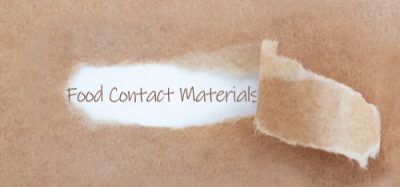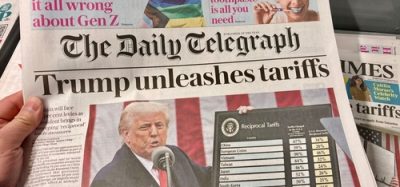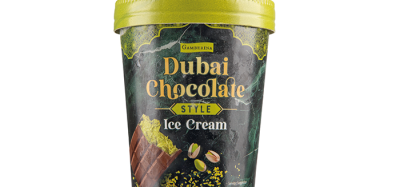The untapped opportunity of the halal market
- Like
- Digg
- Del
- Tumblr
- VKontakte
- Buffer
- Love This
- Odnoklassniki
- Meneame
- Blogger
- Amazon
- Yahoo Mail
- Gmail
- AOL
- Newsvine
- HackerNews
- Evernote
- MySpace
- Mail.ru
- Viadeo
- Line
- Comments
- Yummly
- SMS
- Viber
- Telegram
- Subscribe
- Skype
- Facebook Messenger
- Kakao
- LiveJournal
- Yammer
- Edgar
- Fintel
- Mix
- Instapaper
- Copy Link
Posted: 10 May 2021 | Alison DeGuide | No comments yet
As the number of Muslims worldwide continues to rise, so too will the demand for halal-certified products.


Though halal food is a requirement for Muslims, it is not always easily accessible for those living outside of Muslim-majority countries. The nature of halal makes it challenging to determine whether or not a product qualifies simply by looking at it. While certain items like pork and alcohol are outright prohibited, many other considerations do not show up on a product label, such as how a halal animal like a cow or a chicken was slaughtered, or what the source of an enzyme or gelatine is. Therefore, achieving halal certification from a specialist organisation is essential for manufacturers wanting to make their products available to Muslim consumers.
What is halal?
At its core, halal is a simple concept. The word itself is an Arabic term meaning ‘lawful’ or ‘permissible’. At the other end of the spectrum is haram, which means ‘unlawful’ or ‘forbidden’. The requirements outlining what is halal and what is haram come from both the Quran, the holy book of the Muslim faith, and Hadith, teachings from the Prophet Muhammad (peace be upon him). Two of the most well-known aspects of halal food are the absence of pork and alcohol, including ingredients derived from these sources such as enzymes, stearates or fats. Other lesser known but still fundamentally important requirements are zabihaslaughter (not using meat from animals that are carnivores – including birds of prey) and removing blood from all products.
Zabiha slaughter is one aspect of halal food that is impossible to determine without proper supervision. Its first requirement is that the animal is killed by a cut to the neck with a sharp knife. The people performing the slaughter must be Muslims, invoke God’s name while they cut the throat of the animal, and the animal must then be left to bleed out completely. This blood loss must be the reason for the animal’s death; meaning that the animal must be alive up until the point that its neck is cut. Opinions differ regarding whether or not stunning is acceptable, depending on the Islamic school of thought, but scholars agree that stunning must be non-lethal.
For a product to be considered halal, these requirements must apply to every part of a finished product. Each animal-derived ingredient must come from a halal animal that was slaughtered in accordance with these guidelines, and no porcine-derived materials may be used at any time. Consumers are not typically privy to a company’s manufacturing process, and they may lack the in-depth knowledge of food science necessary to understand which ingredients could present a problem. Because of these factors, they are unable to confirm that a product is halal simply by reading the ingredients on the back of a package. Instead, they have to perform the time-consuming activity of speaking with the company to verify that the product is indeed halal – unless the product is halal certified, that is.
How certification helps businesses
Halal certification is not only a valuable tool for consumers, it also allows companies to market their products to a whole new sector of the population. Islam is one of the fastest-growing religions in the world. According to the Pew Research Center, while adherents made up about 23 percent of the population in 2010, they are projected to reach 30 percent by 2050.1 Interestingly, while the worldwide population is expected to increase by 35 percent in that time, the Muslim population is expected to rise by 73 percent,2 over double that of global population growth. The purchasing power of these consumers is also immense. According to the 2020/21 State of the Global Islamic Economy Report, Muslim spending is projected to reach $2.4 trillion by 2024.3 In particular, Muslim expenditure on food represents a significant portion, with the same report predicting it reaching $1.38 trillion by the same year.4
Though eating halal encompasses several requirements, many of these align with other diets like plant-based or vegan
These projections make investing in halal products a necessity for today’s food executives. Consumers are already asking for halal options, and this demand is slated to rise. If investments in halal certification are left to the future, a company may lose the first-mover advantage and struggle to catch up when it does decide to invest.
Many Muslim-majority countries already have government bodies tasked with verifying the halal status of a product, while others are in the process of creating them. Indonesia, the country with the largest Muslim population, has created a law that mandates food and beverage products be either certified halal and labelled accordingly or risk being labelled haram.5 Any international company wishing to market its products in Indonesia will need to be certified by one of the international halal certification bodies listed on the LPPOM MUI website.
Malaysia, Singapore and the United Arab Emirates are just a few other examples of countries with government regulations on halal labelling. In order to export to these countries, a company must make sure their products are halal certified and labelled accordingly, which typically requires an external review. Many of these government bodies also recognise halal-certifying bodies from other countries, so a business getting halal-certified in one country may be able to pivot to exporting their products to other predominantly Muslim countries. The reverse is also true: a company that has had its products certified halal for export purposes may decide later to use this certification to sell its products domestically. Considering the projected rise in the number of Muslim adherents worldwide, this may present a business with the unique opportunity to increase its market share.
How halal relates to other market trends
One of the benefits of halal is that it easily fits into other popular food and nutrition trends. Though eating halal encompasses several requirements, many of these align with other diets like plant-based or vegan. Several aspects of halal are related to which animals are acceptable for consumption and how they are slaughtered, and these would not present a problem for a product that includes no animal-derived ingredients. Halal can also be integrated into diets such as keto, paleo, or the Mediterranean diet, as only slight modifications may be needed to comply with halal requirements. This makes halal not only good for Muslims but for the population in general.
Halal certification also fits in well with the clean-label movement. While the true meaning of the term ‘clean label’ is still being debated, most definitions include a nod towards more transparency in food labelling. According to a 2019 FoodThink study, a quarter of customers actively distrust the food industry,6 and Executive Director of the Clean Label Project, Jaclyn Bowen, MPH, MS, notes that a ‘growing area of consumer interest and expectation when it comes to clean label, is an increased focus on product contents that are not found on the label.’7 Those following a halal diet have even more reason for concern, considering that these labels typically do not describe the manufacturing processes, which may or may not incorporate things like lubricants derived from pigs.
When a product is halal certified by a third party, it means that the company has opened itself up to greater scrutiny by allowing an external organisation to audit its manufacturing process and examine its ingredients. This demonstrates a commitment towards greater transparency, as well as improving access to halal food for Muslims worldwide. The increasing number of Muslims and the depth of their purchasing power means that halal-certified products will only continue to grow in importance. For food executives looking to get ahead of the trend, now is the time to get certified.
References
- ‘The Future of World Religions: Population Growth Projections, 2010-2050,’ Pew Research Center, 2 April 2015, pewforum.org/2015/04/02/religious-projections-2010-2050/.
- Ibid.
- 2021/21 State of the Global Islamic Economy Report, produced by DinarStandard with the support of the Dubai Islamic Economy Development Center, p. 2. Available for download here: salaamgateway.com/specialcoverage/SGIE20-21.
- Ibid, p. 39.
- ‘Indonesian Halal Product Assurance Requirements,’ International Trade Administration, U.S. Department of Commerce, 19 March 2021, trade.gov/market-intelligence/indonesian-halal-product-assurance-requirements.
- Sexton R. ‘FoodThink Study Examines Consumer Trust In Food Industry,’ The Shelby Report, 10 April 2019, theshelbyreport.com/2019/04/10/foodthink-study-trust-food-industry/.
- Bowen J. ‘Controlling contaminants: the new facet of “clean label,”’ New Food Magazine, 19 August 2019, newfoodmagazine.com/article/91202/controlling-contaminants-the-new-facet-of-clean-label/.
About the author
Alison DeGuide is the content manager of Halal Consumer Magazine and content developer at the Islamic Food and Nutrition Council of America (IFANCA®), which focuses on helping consumers find halal products by helping the industry to produce halal products.
Related topics
Free From, Quality analysis & quality control (QA/QC), Regulation & Legislation, World Food









